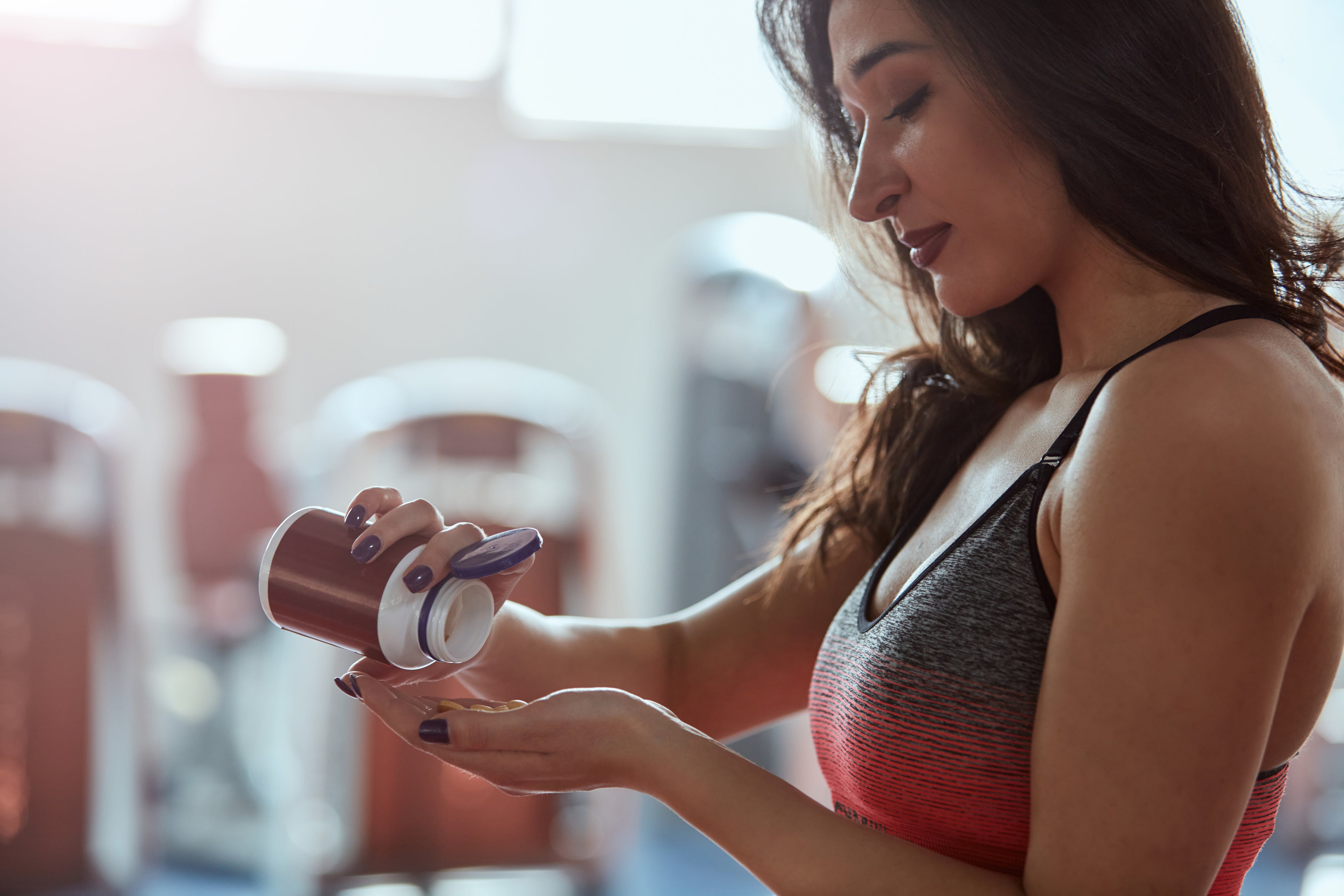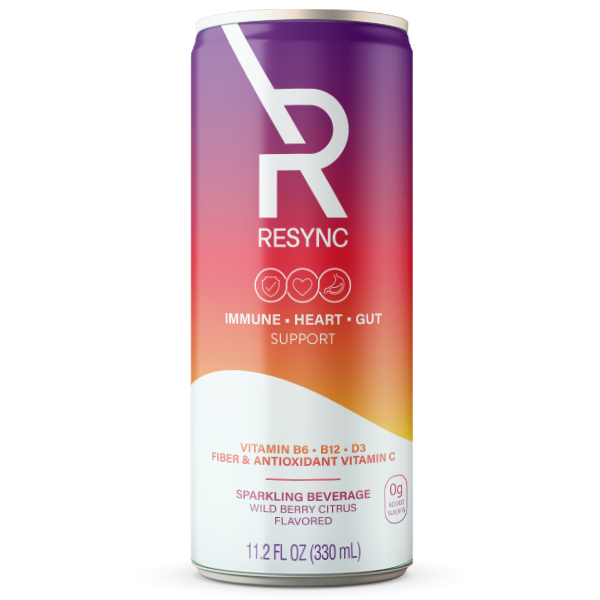
LET'S TALK COLLAGEN
Everything You Want & Need To Know
About Collagen Protein
Author Barbara Depta
Why Do You Need Collagen Builders, Co-factors & Regulators In Your Diet?
Collagen is a vital protein that keeps our skin supple, joints mobile, and soft tissues strong and healthy.
Age alone decreases collagen levels in every layer of your body, leading to painful joints - "bone-on-bone," weak tendons, unmovable fascia, wrinkles, and other age-related factors.
Lack of movement, incorrect posture, or body alignment also impact collagen levels. Another factor contributing to your collagen levels is the food you eat. Technically, what you eat and how you move will affect your collagen health.
What's important to understand is that plain collagen supplements, plain collagen protein powders, plain collagen pills, or plain collagen drinks will not support your soft tissue strength or joint mobility.
Why?
Because collagen protein alone, just like any single vitamin, is not that potent. You need collagen "builders" to make collagen and support the structure of your body. At Resync, we look at all factors impacting your collagen production.
In this blog post, we'll delve into:
- What Collagen Builders Are
- Critical Nutrients - Collagen Builders
- Foods That Promote Collagen Production
- Best Practices To Support Collagen Health
- Wrapping Up: The Benefits of Boosting Collagen
1.What Collagen Builders Are
Collagen builders, as the name implies, support and boost collagen production in the body. Instead of providing direct collagen, as most supplements do, collagen builders enhance the body's ability to produce its own collagen1. Having collagen builders in your collagen supplements or food is critical and ensures that collagen production takes place in a sustainable approach to maintaining youthful skin, strong tendons, fascia, and resilient joints.
2.Critical Nutrients - Collagen Builders
With few distinctions, most of your body is made of collagen type I.
From skin to tendons and bone. That is right. The same collagen protein needs to be present almost on every layer of your body, except for places like the knee cartilage, which requires more type II collagen than type I.
Nonetheless, there are different types of collagen in the body. The major ones are types I, II & III, which comprise most of our tissues.
What is essential is that collagen cannot be made without these collagen-supportive nutrients.
Here are the most critical nutrients that affect how much collagen protein is made in every layer of your body.
The fundamental building blocks are the amino acids.
The distribution of these building blocks is different depending on the tissue type. Essentially, you must have the full spread of amino acids to build collagen and promote its resiliency. Amino acids also play the role of collagen regulators, in addition to being building blocks.
Check our online class if you want more details on collagen builders.
For collagen production to take place, you also need co-factors.
The nutrients that plug into the enzymes and make them work for your collagen protein to operate optimally. For example, vitamin C and Cooper.
Vit C is a classical antioxidant, which plays three different functions here.It is an antioxidant. It increases protein absorption in the gut. And it's an essential co-factor in the most critical collagen-making step.
If you're not getting enough copper, your collagen will be made, but it won't be strong enough. Whereas if you're not getting enough vitamin C, you're collagen isn't even going to be made. And so the fundamental takeaway of this is that you know the collagen synthesis is the same for each layer of your body, but how that collagen is used in each layer requires another layer of nutrient nutritional requirements to have that collagen adapt to the structure and function.

Larger antioxidants and inflammatory regulators also play a significant role in collagen production.
Your body's pH levels will impact how much collagen you make and keep healthy. Your weight status and the presence of any chronic condition will affect your collagen synthesis. That's where antioxidants and anti-inflammatory ingredients will significantly impact regulating the collagen-making process.
Sulfur and magnesium are just two of the many regulators your body needs to make collagen.
It's essential to understand what goes into the process for you to make wiser and healthier decisions on the food and supplements you choose.Check out our class here if you want to know all the collagen regulators.

3. Foods That Promote Collagen Production
Food always comes first. Food is our medicine. And certain foods can help our bodies make more collagen. Here's an in-depth look at some of these foods:
Bone Broth:
- Overview: There are many kinds of bone broth you can make and buy these days. Bone broth is made by simmering animal bones and connective tissues for an extended period. Usually, a minimum of 8 hrs. The longer the cooking process, the better. This process releases various nutrients, including amino acids like glycine, proline, and hydroxyproline, essential collagen building blocks.
- Benefits: The readily available amino acids in bone broth support the body's ability to form collagen. Additionally, bone broth contains other beneficial compounds, such as minerals, chondroitin, and glucosamine, which support joint health.
- Incorporation: Bone broth can be sipped as a warm beverage used as a base for soups and stews.
Fish and Shellfish:
- Overview: While most know that fish is a good source of omega-3 fatty acids, fewer know that their skins and scales are rich in collagen.
- Benefits: Marine collagen, primarily sourced from fish, is rich in Type I collagen (just like bovine collagen). If you are big on marine collagen, you want to read our blog post on Marine Collagen. There are some shocking facts.
- Incorporation: Besides consuming fish filets, consider dishes that use the whole fish. Broths and stocks made from fish bones can also be beneficial. As for shellfish, their exoskeletons have chitin, a component that can promote collagen production.
Citrus Fruits:
- Overview: Remember the collagen co-factors from above? Well, when you consume collagen protein, you need vitamin C with it. That is where citrus fruits like oranges, grapefruits, lemons, and limes become helpful. Yet, the fruit alone will not make more collagen in your body. I want to make sure that is crystal clear.
- Benefits: Vitamin C is crucial for the hydroxylation of amino acids during collagen production. Without it, the body cannot form the stable triple helix structure of collagen.
- Incorporation: Besides eating them fresh, citrus fruits can be added to protein-based smoothies and salads. A squeeze of lemon or lime can also be a flavorful, collagen-boosting addition to water or Resync collagen hot tea.
Copper-Rich Foods:
- Oysters and Shellfish: They are among the best sources of dietary copper. They also provide other vital minerals and vitamins.
- Organ Meats: The liver, especially from beef, is a dense source of copper.
- Dark Chocolate: High-quality dark chocolate contains a good amount of copper. However, it should be consumed in moderation due to its calorie content.
- Nuts and Seeds: Almonds, cashews, sunflower seeds, and sesame seeds are good sources of copper.
- Leafy Greens: Spinach, kale, and Swiss chard can contribute to your daily copper intake.
Like with vitamin C, copper is essential in helping you build collagen. However, eating only foods rich in copper will not produce more collagen.
4. Best Practices for Collagen Enhancement
While collagen supplements (essential to have more than plain collagen protein and no sugar) and food are pivotal in promoting collagen production, it's essential to remember that lifestyle choices play a significant role in ensuring the health and vitality of our collagen stores.
Here are some best practices to help you boost and maintain collagen:
Protect from UV: UV rays break down the collagen fibers in our skin, leading to sagging, wrinkles, and fine lines. But it's not just about appearances. Damage from the sun can also increase the risk of skin cancers. Hence, protecting your skin from excessive sun exposure is crucial:
- Apply Sun blocker: UV rays can affect our skin even on cloudy days or during winter months. Use sunblock because it literally blocks UV rays by forming a physical shield.
- Wear Protective Clothing: Hats, sunglasses, and long-sleeved shirts can provide added protection against the sun.
- Avoid Peak Sun Hours: Where possible, stay indoors or in the shade between 10 a.m. and 4 p.m. when the sun's rays are the strongest. An early morning or evening walk can be better for your mind-body health.
- Boosts Skin Elasticity: Drinking water helps in maintaining the skin's elasticity, which in turn aids in collagen production and function.
- Flushes Out Toxins: Regular hydration helps the body get rid of toxins, which can negatively affect collagen.
- Keeps skin Moisturized: Hydrated Skin is less prone to dryness and flaking. This environment is conducive to healthy collagen levels.
Avoid Smoking: Smoking not only harms our lungs and overall health but is also detrimental to our skin's collagen. Nicotine narrows the blood vessels in the outer layers of the skin, impairing blood flow. Additionally, smoking increases the production of enzymes that break down collagen, leading to sagging skin and deeper wrinkles. Quitting smoking or never starting can significantly benefit collagen health.Smoking not only harms our lungs and overall health but is also detrimental to our skin's collagen. Nicotine narrows the blood vessels in the outer layers of the skin, impairing blood flow. Additionally, smoking increases the production of enzymes that break down collagen, leading to sagging skin and deeper wrinkles. Quitting smoking or never starting can significantly benefit collagen health.
Here are some best practices to help you boost and maintain collagen:
Stay Hydrated: Hydration plays a critical role in maintaining skin health. However, drinking water and taking electrolytes is insufficient to stay hydrated. Movement, touch, and hands-on therapies are essential in your hydration and collagen production.
It's recommended to drink at least eight glasses of water a day. As we mentioned above, water is an essential foundation, but not enough to keep your body hydrated.
5. Wrapping Up: The Benefits of Boosting Collagen
Hopefully, after reading this blog, you can see that collagen is more than just a beauty buzzword. Collagen is your fundamental protein that maintains our skin's elasticity, soft tissue, cartilage, joint health, and more.While aging might decrease collagen production, we can counteract this process with collagen builders, co-factors, and regulators through our diet, collagen supplements, and other beneficial self-care practices. It is more than just enhancing our outer beauty. Consuming collagen ensures our bodies remain strong and resilient as we age. Resync Collagen is a great way to boost your collagen and enjoy the many benefits of collagen. No other collagen supplement on the market will provide the same value as Resync. Learn more about Resync Collagen here.
Increase your nutritional knowledge
Red Spinach (Not Green!) to Support Your Cardiovascular Health
Read this blogA Guide On How So Select The Best Veggies: Why Their Color Is Important
Read this blogMost Valuable Antioxidant Showdown During Flu Season: Elderberry vs. Aronia
Read this blogDisclaimer
This content is for general informational purposes only, and does not constitute the practice of any professional healthcare service, INCLUDING the giving of medical advice. No provider-patient relationship is formed. The use of this information, and the materials linked to this content is at the user's own risk. This content is not intended to be a substitute for professional medical advice, diagnosis, or treatment. Users should abide by the advice of their healthcare provider, and should not disregard or delay in obtaining medical advice for any medical condition they may have.






